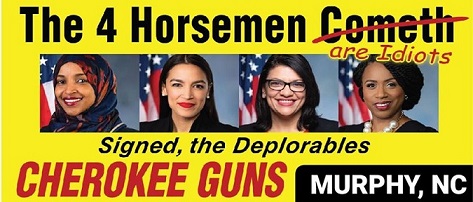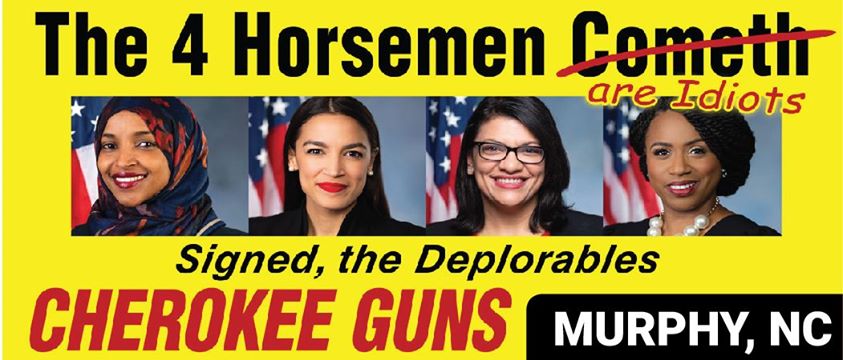More than once over the last three years, Donald Trump's political ruffianism has drawn comparisons to another notorious practitioner of the dark arts of demagoguery and division, four-time Alabama Gov. and three-time presidential candidate, George C Wallace. Wallace's political approach back in Alabama was largely based on the tried and true race- and Yankee-baiting model favored by generations of southern segregationist politicians before him. A similar but more evolved and complex modus operandi won him 34% of the 1964 Democratic presidential primary vote in Wisconsin and a whopping 43% in Maryland. Running for president as an Independent four years later, the same M.O. had pollsters projecting him with nearly 20% of the vote scarcely six weeks before the general election balloting.
It is this latter, national campaign strategy that offers the sounder--and scarier--comparisons with the Trumpian onslaught of 2019. For example, considering Wallace's standing in the polls in September 1968, one might detect a painfully familiar ring in the New York Times's confident assertion seven months earlier that "since Mr. Wallace is an ignorant, mean-spirited adventurer without personally attractive or socially redeeming qualities... The longer he campaigns the weaker he will become." As befits the Times's lengthy record of being strikingly out of touch with mass opinion in the United States, its editors had seriously underestimated the truly national scope of a white backlash triggered by the rise of black militance and urban violence, the northward shift of school integration pressures, student protests, and the perceived excesses of Lyndon Johnson's Great Society programs.
Showing an instinctive genius for melding racial animosity and socioeconomic anxiety into a high-impact political bludgeon, Wallace ranted away against "senseless, asinine busing" while mocking liberal "pseudo-intellectuals" who "explain it away" when "someone goes out and burns down half the city and murders someone... by saying the killer didn't get any watermelon when he was 10 years old." Wallace's racial dog-whistling may have come across as a tad bit cruder than Trump's has to date, at least, but the more noteworthy difference in political styles between the two lies in how they chose to target the hate and fear they so expertly weaponized.
Wallace largely trafficked in fiery denunciations of stereotypical groupings like civil rights "agitators," "long-haired hippies" or "the smart folks in Washington who have been looking down their noses at you," but generally refrained from singling out individual representatives of these cohorts. On the other hand, as historian Kevin Kruse and others have noted, Donald Trump has long made it a practice to put particular names and faces on the populations he mocks and demonizes, a representative, but by no means comprehensive listing of which includes beauty queens, print and broadcast journalists, television and movie performers, Hispanic judges, and, of course, the political opposition. In the latter case, as the billboard below suggests, he could hardly have found more polarizing or evocative faces to plaster on his stereotype of the entire Democratic Party as nothing but a bunch of wild-eyed, America-hating, socialists and anarchists than those of the four young hard-left first year Democratic congresswomen known these days as "the Squad."

Ironically, it is the aggressively vocal determination of an Alexandria Ocasio-Cortez or an Ilhan Omar to stick to their ideological guns in defiance of Trump's incendiary bullying and the death threats it has incited that has made them the ideal foil for his efforts to further stoke the fires of racism and xenophobia among his base. In his mind, Rep. Occasio-Cortez serves nicely as the face of once underprivileged now overindulged inner-city ethnic minorities looking to scrap the capitalist system in favor of a utopian welfare state, financed courtesy the sweat of other brows. Meanwhile, in the climate of fear in which Trumpism flourishes, Rep. Omar offers a flesh and blood affirmation of suspicions that Muslim-Americans not only countenance acts of Islamic terrorism abroad but might well cooperate with such heinous acts in this country as well.
It seems beyond foolish at this point for the Democrats to continue to hold out hope that Trump's reckless manipulation of the volatile biases behind these stereotypes might yet trigger the gag reflexes of his blue collar faithful. They might do better to face up to the sobering possibility, even likelihood, that the President's frenzied attacks on these women may ultimately benefit him more simply by boosting turnout in the states most critical to his re-election than they would cost him with voters elsewhere. For many years, George Wallace and other southern defenders of white supremacy delighted in wearing the condemnations of northern white liberals or the NAACP as "badges of honor" in the eyes of their constituents. Surely it requires no great stretch of the imagination to envision the harsh criticisms of bubble-dwelling New York Times editorialists simply boosting Trump's creds in the rural heartland and Rust Belt. As an apprentice historian mesmerized by George Wallace's 1968 presidential run, I was stunned by the strikingly receptive national response to what struck me as a rawer, meaner, more bloodthirsty appeal to the very worst of human instincts than any I had encountered in my early delvings into the annals of American politics. Further digging over the years has turned up some examples that might temper my hot take on the 1968 Wallace campaign, though still none that, to my mind, have reeked so sulfurously of vicious incitements to hatred and violence. None, that is, until the one now unfolding half a century later.
